Go Beyond the Gag Reel: Supernatural Season Five
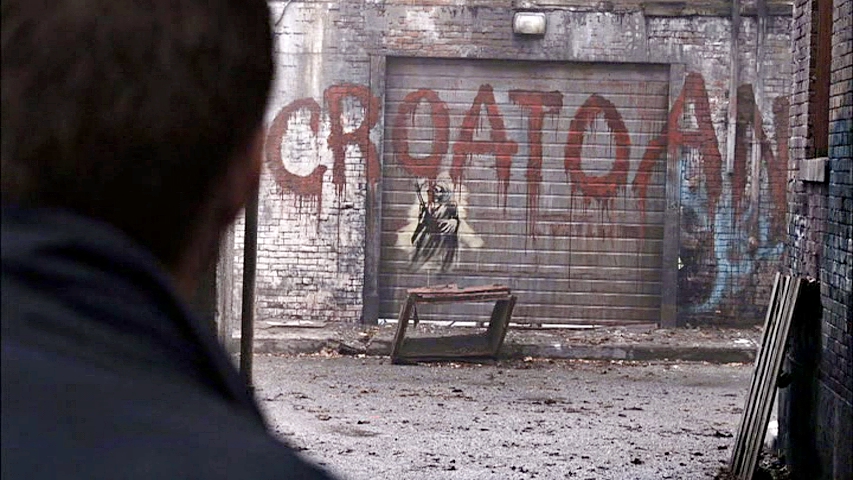 Deleted scenes, commentaries, and special extras expanded much on Supernatural season four’s DVD set, and season five continues that tradition.
Deleted scenes, commentaries, and special extras expanded much on Supernatural season four’s DVD set, and season five continues that tradition.
There’s deleted scenes that expand on particular episodes, there’s a key commentary on “The End,” and there’s a special feature breaking down all the research and mythology that factored into the make up of season five’s Apocalypse driven story-lines. Even the Ghostfacers get to shine here with their webseries featured. All of these extras build upon the season overall, giving us another layer to the show. Some of it adds an extra moment of humor while others gives us pause to consider deep philosophical and theological questions. In the end, we’re left with a richer understanding of season five.
Let’s first look at those deleted scenes as we prepare to once again “Go Beyond the Gag Reel.”
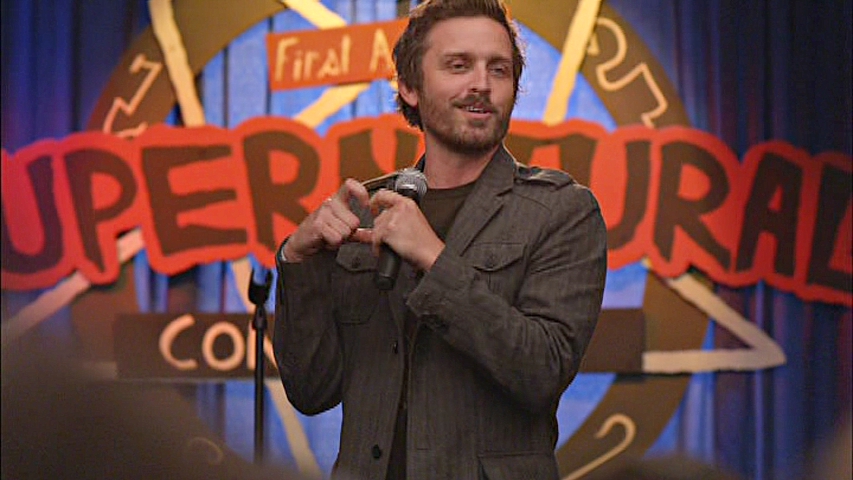
All screencaps are credited to Raloria and used with permission.
After the glut in season four, season five only yielded one deleted scene—and it’s an expansion on a rather well known moment at that. Found in “The Real Ghostbusters,” we watch more of Chuck’s rambling as he stalls at the first ever Supernatural convention. He’s trying to fill the space with anything and everything that will pop into his head, giving us more awkward to laugh at. There’s everything from who John was based on—not his father—to ramblings on what minor character he liked most (hint, the crowd doesn’t agree with his choice!) to recusing himself from reading a Live Journal fanfic. This deleted scene touches on so much of not only the show’s history, but brings in the fanbase all the more. It’s quirky, short but sweet, and gives us more chance to see Chuck. And as for what Chuck’s afraid of? Well, that should be obvious. Everything.
The next extra is the Ghostfacers webseries. Written by Travis Wester and AJ Buckley, we watch a case from start to finish with the Ghostfacers as they rebuild after the tragic loss of Corbett. It retains much of the parody, satire, and silliness that has been a trademark of the Ghostfacers since their first introduction in “Hell House” and expansion in “Ghostfacers” but also gives us a deeper glimpse into the inner minds of Ed and Harry. Wester and Buckley take their characters to a serious level amongst all the silliness, giving us a richer understanding of why Ed and Harry do what they do. It fleshes them out in a way we won’t quite get to see in Supernatural itself until “#Thinman.” Broken into segments, we’re shown from the beginning of the investigation to the aftermath how the Ghostfacers team “faces the nightmares” and approaches the difficult truths that all hunters in Supernatural must face at some point.
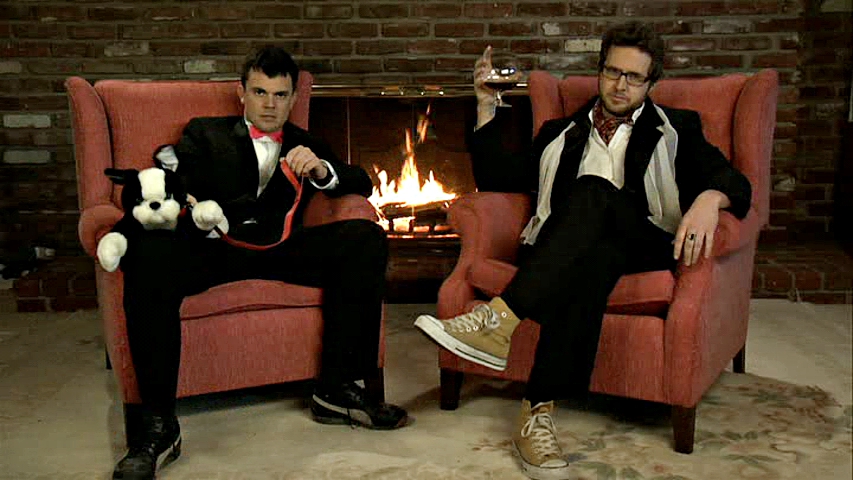
Taking a cue from its parent show, Ghostfacers is rather meta-fictional in nature. Their case deals with a ghost trapped in a theater. Alive, she was an aspiring actress looking for her big break. Unfortunately, a jealous lover cut short that ambition. She’s cut down and her face slashed in front of a mirror, forever trapping her in that final and awful moment. The Ghostfacers arrive on the scene armed with the knowledge that they are entering a place where people have reported being attacked by this specter. Her story is a direct reflection of the Ghostfacers. They, too, are looking for that big break and they too are naïve prior to the tragedy that is set to take place.
Ghostfacers keeps in line with the tone struck forth by Edlund as a commentary and critique of reality TV. They continue to lampoon the genre, giving us moments of confessional videos such as Harry and Maggie discussing their reasons for not entering a relationship to seeing a pretty but dense blonde intern taking the place of a much more experienced and knowledgeable man—all because she is pretty! We get to see all the standard nuances of reality program of this genre—particularly that of Ghost Hunters. Cameras are set up, everyone checks in via their walkie talkies and on camera, and they set off to capture anything and everything on film. It takes that concept, however, and turns it into a comedy as we see Ed and Ambyr discuss her on camera right before the shocking attack. Harry is thrilled that they managed to capture the spirit on camera without a doubt—and without interference from the “douchenozzles” otherwise known as Sam and Dean Winchester.
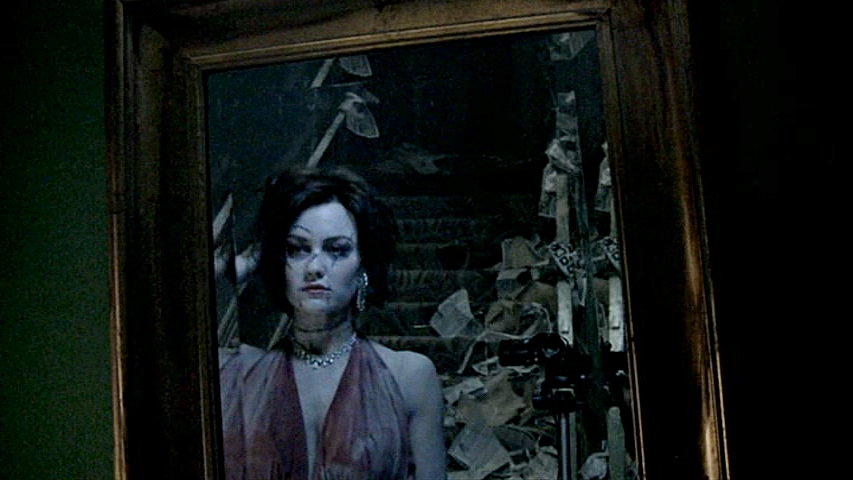
But that’s not the only meta-fictional shout-outs included in the series. The spirit being trapped in mirrors as a means of remaining here ties back to season one of Supernatural—in particular the mentioned Bloody Mary. The fact that it takes the Ghostfacers team to smash all the mirrors to disperse with the spirit also hearkens back to that early episode. The webseries was smart to draw upon its parent in this way, giving us an inner joke as Supernatural fans to giggle at all the while being drawn into the serious underpinnings of the story taking place between the leads, Ed and Harry.
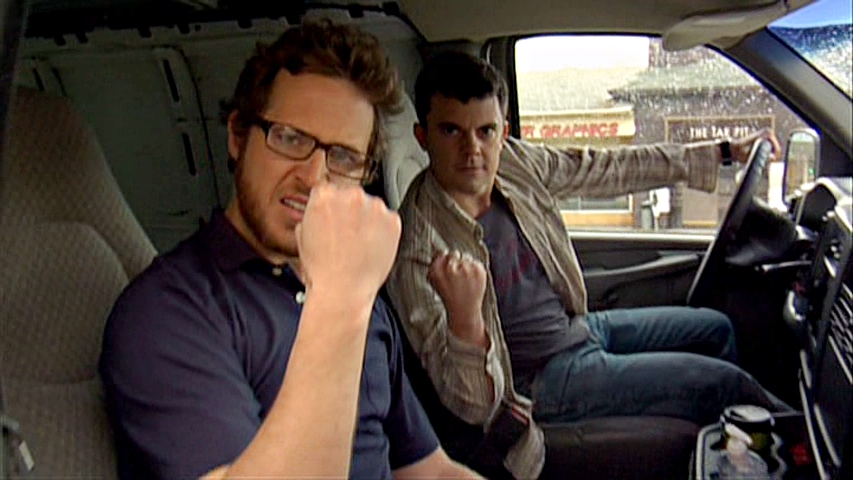
As their latest intern is attacked and brutally scarred by the ghost they wanted to capture on film—and after Ed insists on staying to put an end to this spirit’s vengeance—we see the Ghostfacers disband briefly. Ed wants to walk away. He’s had it with watching their interns face the consequences, and so we see him drop out. He gets a day job at a pizzeria, he refuses to be on camera as much as possible. It isn’t until Harry arrives with confirmation that their work at the theater ended up with a happy ending that Ed will consider returning to the fold. We see this conclusion told through Harry’s eyes—only to have the closing shot with Ed and Harry once again reunited again. And, as always, if anyone is interested, they’re looking for an intern!
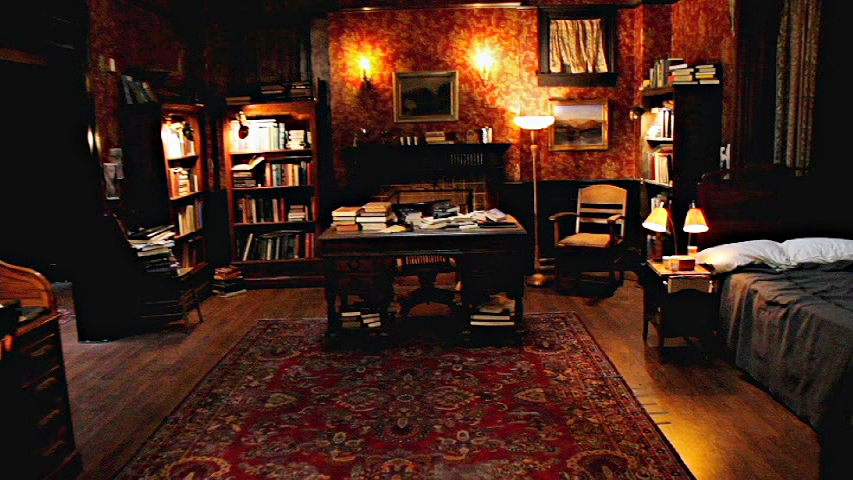
The next feature is Bobby’s Survival Guide to the Apocalypse. Its interface works much like someone playing a first person shooter video game as we navigate via the remote through Bobby’s house. We’re led from his desk to his bookshelf to his television to get deeper insights into the make up and underpinnings of season five’s mythological and theological basis. Each segment discusses a different element from Michael and Lucifer being literal or figurative brothers to the Church of Satan. Each segment gives us great pause into the various threads used to tell this particular over arching story. While none of these segments seem to touch too much on Sam and Dean’s story, we can clearly see how each one played a role in shaping it directly and indirectly. It gives us the philosophical background that makes the season rich.
Let’s look at the first segment: The Horsemen of the Apocalypse.
In it, we’re told of the historical and Biblical foundations that Supernatural would use to build season’s five story. The Horsemen are found in the Book of Revelations, and they are the harbingers of all things destructive. Each one represents a terrible failure in a society or civilization that will eventually lead to its ultimate and horrible destruction. They are our worst fears, traits, and failures brought into ultimate personification.
War leads to the dissolution of society. It is the violence that tears its apart and turns the most civilized into the vicious and frightening. It can be seen on streets every day throughout the world—or in the vast battlefields that have riddled our human history—from the Roman era to the World Wars to the current conflicts consuming our daily news. War is one element that can begin the end for a society—weakening it and making it vulnerable to the three remaining Horsemen.
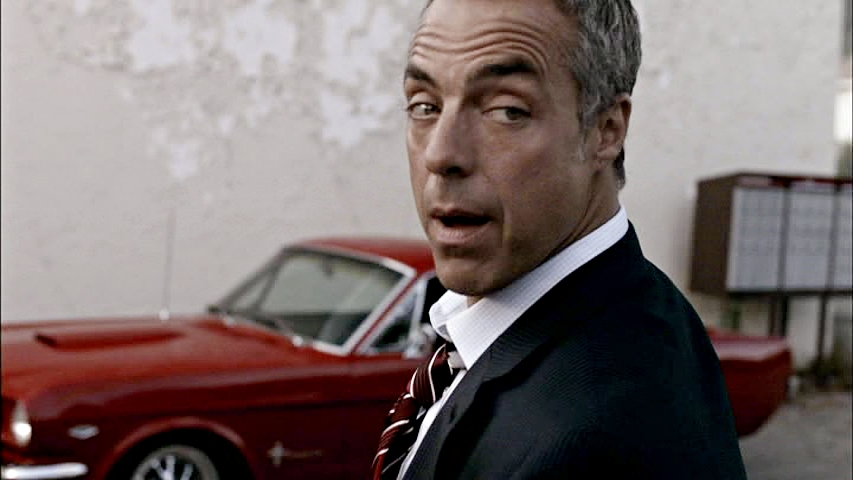
Edlund states that the use of the Horsemen, the Book of Revelations, and the Apocalypse is a method in which to tell their story—it is “the language” they can use to encompass the growing weight being carried within the story. It’s why we see War first in part—since it is his involvement in “Good God, Y’all” that shows us the beginning of the end—the Apocalypse come to fruition upon Lucifer’s release from Hell. Gamble states that War’s introduction and characterization was key. He needed to be very ordinary and much like a towns-person that understood the town he was corrupting. He had to also be charming so to worm his way into the town—thus earning the nickname of “wormwood.”
Famine follows War often—showing the natural progression of the violence brought upon humans by humans. As war pillages and rapes the land, the food sources are destroyed or consumed by the armies that draw upon them for supplies. It leaves those left in the wake of War to starve and die. This story has repeated itself a hundredfold throughout human history—notably in the horrors of Cambodia’s Killing Fields for instance. Famine drives people to desperate acts. It continues the vicious circle that War began. It weakens people over time, and it destroys society even further into a chaos ripe for the taking for the next horseman: Pestilence.
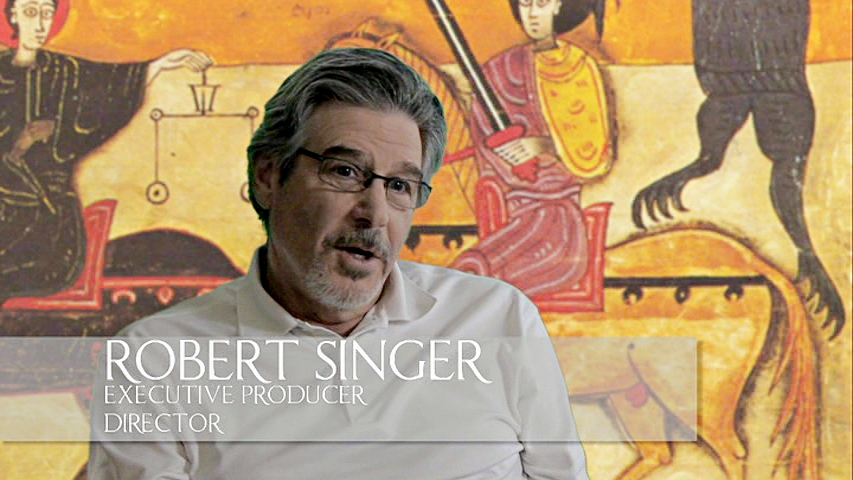
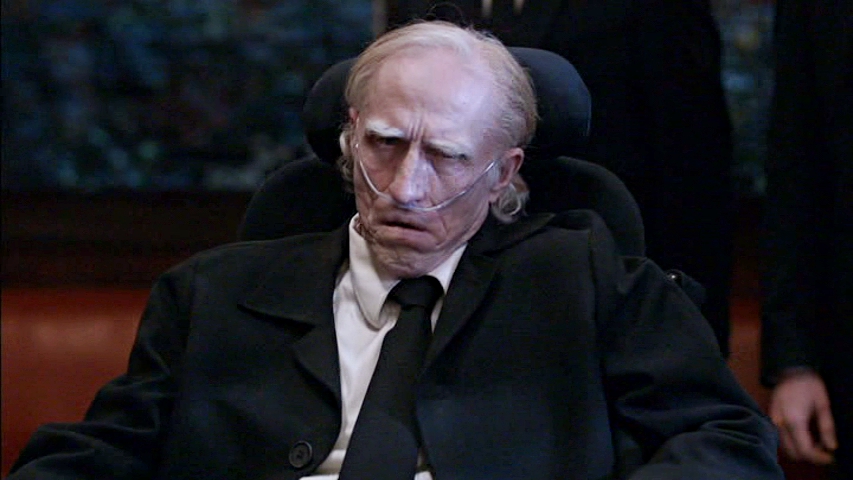
Singer describes the introduction of Famine as perhaps the “spookiest thing we’ll ever do.” Edlund feels that it was unlike anything they had done on Supernatural prior. He was unique in the wheelchair with the oxygen tank and the feeble appearance—and yet he comes off as all together terrifying. Famine has pushed everyone to the brink and then over the edge to feed their inner cravings to the point of death. Nothing will be satisfying enough. This differs in some ways from the classical concept—Supernatural wisely used the framework of their setting to capture Famine in a way that fit the show’s time and place. Rather than showing everyone starving away to nothing but skin and bones, instead Famine forced everyone to give into the extreme gluttony and then some that is often considered a hallmark of American over-indulgences.
Once weakened by War and then by Famine, humankind is ripe for the plucking for Pestilence. He makes use of weakened immunities to kill off those who managed to endure the violence of War and the desperation of Famine. It is disease and the physical breakdown of our own bodies that will lead to further destructions of our societies and civilizations. Pestilence will make us too weak and too afraid to fight back against the first two Horsemen. Rather, we will only succumb more and more—and in more gruesome manners. No disease event captures this horror more than the Black Death of the 1330s in Europe. Responsible for anywhere from one quarter to one half of the population to being wiped away, it is a terrible and tragic event that continues to haunt our imaginations some 680 years later. Each time a case is brought forth in the news that an American or other person has contracted Bubonic Plague—and has been treated successfully even—we shudder in intuitive fear of the horrors that could have been and have been in the past. Pestilence may infect us with physical diseases that destroy the body—but it is the mind that it truly corrupts and destroys—with fear. That is true today with the fear of Ebola breaking out in Africa and the daily reports of aid workers contracting the devastating disease. All of this leads to one gruesome end—a finality in none other than Death himself.
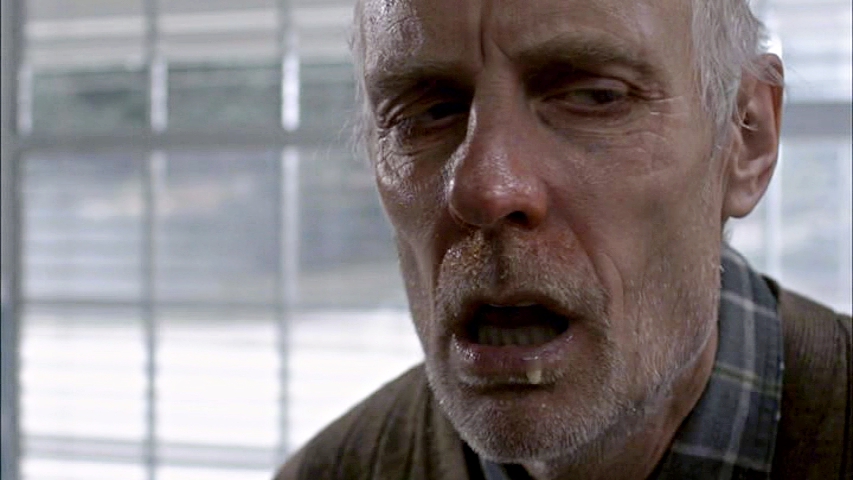
On Supernatural, we see this story emerge not from season five—but from season two. Kripke continued to hound the writers about when Croatoan would return to the landscape of the show. It had been introduced as a frightening demonic virus meant to destroy humanity—and then it was subsequently “dropped” to Kripke’s frustrations. He states that Edlund pitched an idea to him— “mostly to get me to shut up” about the virus being inserted into flu vaccine. The flu they were concentrating on in season five happened to be swine flu otherwise known as H1N1. It was the Ebola break out then—and it’s easy to see that if Supernatural had been tackling this particular story now that Ebola would perhaps be the disease of choice.
Much like Pestilence, itself, infecting people’s minds in all the literature we see of this nature—Supernatural, too, decided to use the fear factor to tell the story. What better way for the demons charged with infecting humanity with Croatoan than to use fear on the populace? They needed to convince the public that they needed the vaccine for H1N1—all so they could slip in their Trojan Horse and destroy humanity in the process. Edlund states that it would be one of the smartest ways to do something of this nature—that this type of biological warfare would be its most devastating when everyone is rushing to get the “cure.”
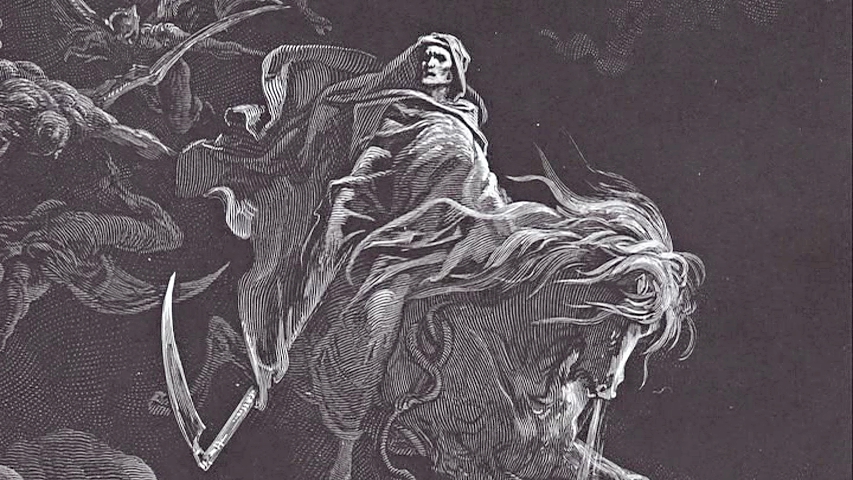
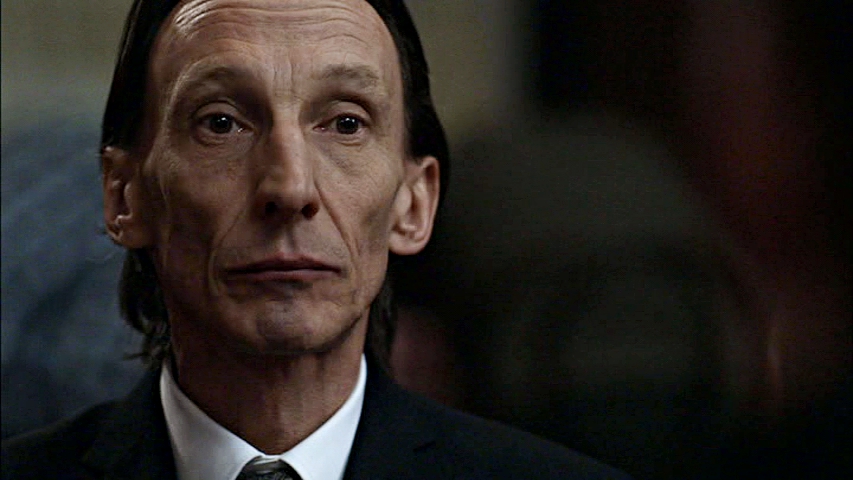
Once War, Famine, and Pestilence have wreaked havoc upon the population, there’s nothing left but to die. Death is the most powerful of Horsemen. No matter what we do to avoid the other three Horsemen, there is no escaping the clutches of death for any of us. Death, as they say, is as inevitable as taxes. It is final, it is frightening, and none of us quite know what will happen on the “other side.” It is something we’ve tried to thwart, cheat, and put off for as long as we’ve been occupying the planet. We’ve tried to find fountains of youth and methods to become immortal. We’ve used alchemy and science. We’ve looked to religion for eternal life. Yet, there remains Death waiting to take us no matter what we do.
On Supernatural, we see Death introduced in a very unusual manner. He is simply eating pizza at a diner while the city of Chicago is swirling with its near destruction. Edlund describes this as Death’s “joke.” For Gamble, he’s her favorite Horseman. He’s the most powerful, the oldest, and the strongest. Death is meant to be intimidating and overwhelming. It’s stunning to think of one’s self in the presence of such a being—one that is infinitely wiser and more powerful than any person can ever hope to be. In Supernatural, despite the many deaths and resurrections, it’s also apparent in the way Death carries himself—much due to Julian Riching’s acting—that he’s inevitable. Death is and always will be waiting around the corner—patiently no less to reap what belongs to him.
When it came time to introduce these characters, Supernatural had to adapt each one to fit their concept. Edlund describes the show as being about the modern American road. It would not work to have the Horsemen emerge onto the landscape as they are described in the Bible. Gamble points out that horses would have worked for the generation first reading Revelations—but for Supernatural the Horsemen would need to be seen in muscle cars or modern vehicles. It would put them into the world of Supernatural while making their characters instantly recognizable. War rides a red horse, hence a red Mustang. Death rides a pale horse, and so drives a white Cadillac.
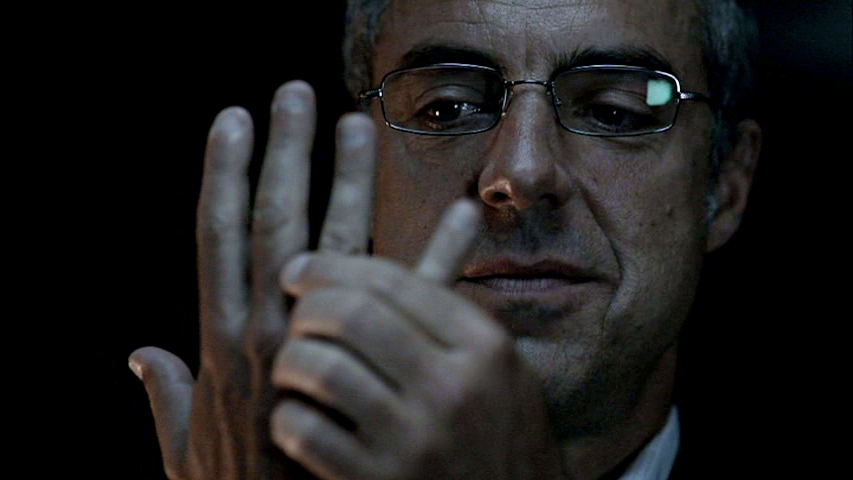
The other concern they had to address was that Horsemen couldn’t be killed. Therefore, the Winchesters would need a method to use against them. They’re only human going up against such terrible figures that they felt balance needed to be brought to the story. To accomplish that, they gave the Horsemen rings. It wouldn’t kill a Horseman to lose that ring, but it would weaken them or rob them of some power in order for the brothers to gather the rings for Lucifer’s Cage. It allowed for an objective and a means to follow it.
The Horsemen in season five have always had great weight within the story—and this feature captures exactly why they remain so vivid and powerful in the imagination of not only Supernatural fans but for writers of all generations. They give us a face to our worst fears—both wrought by us and upon us—and give us a means to discuss. Gamble states that this method of storytelling gives us enough “distance to have the discussion without just running into the corner and crying.” In many ways, she’s absolutely right.
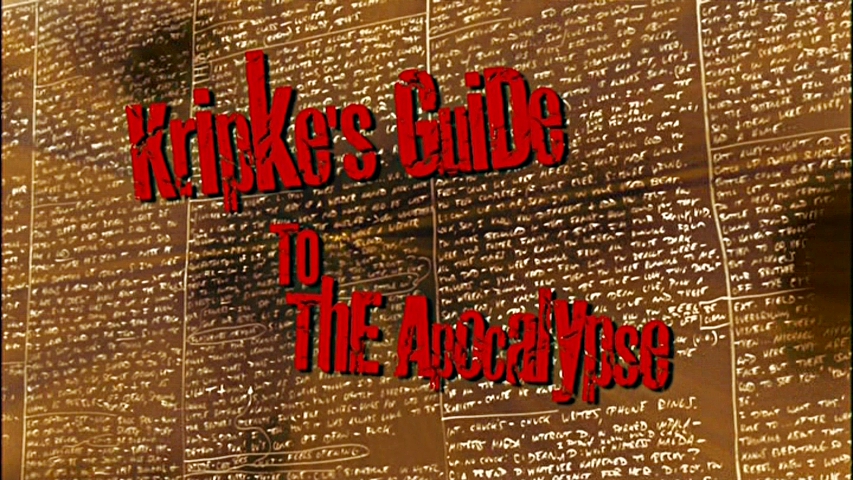
The next feature takes us through Eric Kripke’s Guide to the Apocalypse. This feature is more about the writer’s room and over all show-running of Supernatural than simply Kripke breaking down the actual Apocalypse. He covers everything from his day to how they set out to approach season five to how the show evolved for him over time. Everyone from Robert Singer to Sera Gamble to Jared and Jensen discuss how Kripke works on the show.
We’re afforded another glimpse into the writer’s room, too. The beautiful boards shown to us in season three’s extras are back in their scrawled glory. Behind Kripke we can see them laying out various episode points and character points. It really adds to everything Kripke says about the efforts it takes to work on so many episodes at once. At any time, as show-runner, Kripke would have to be keeping track of at least seven episodes. He would be rushing from one conversation to another trying to keep track of all the production and creative details necessary to make sure Supernatural reached the screen each week.
When it came to season five, it was apparent that they were now going to tackle the Apocalypse. Kripke said that everyone on staff read the Book of Revelations in order to prepare. He found the work “trippy.” It had a set course of events that had to be followed that they could then base their story upon. He admitted that they weren’t going to have angels on the show at first—that it just wasn’t part of his landscape. It happened on accident. Kripke realized that they were dealing with one “side of the coin.” They had the dark half in the demonic side—and so they had that other side dangling.
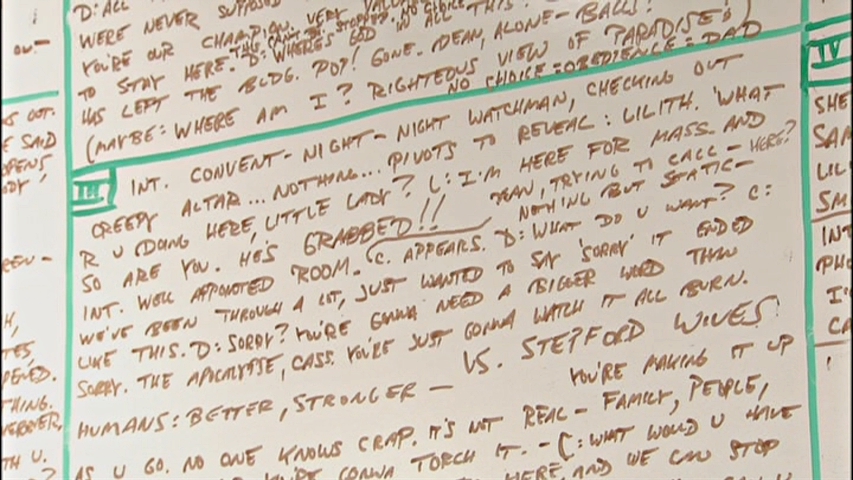
Kripke also admitted that the season made them look “smarter than” they really are. They hadn’t planned on Lucifer back in season three necessarily. He had been mentioned by Casey, but the concept that Lucifer would be an angel and that they would be launching the Apocalypse wasn’t the plan at the time. As they started to dig into season four and angels and eventually looking at season five, it became obvious to Kripke. Of course Michael is Dean and Lucifer is Sam. He said the angels fit into the show when he conceived the idea of them as being a “family” in Heaven. Since Supernatural is about family, it reasoned that angels had to be a family, too.
What’s fascinating about this extra, though, is while we’re focused on Kripke and his writing/show-running style, we’re also afforded a chance to see how collaborative television is again. Jared and Jensen discussed how their strengths as actors have been written towards by the writers. Jensen said that it allowed the characters to “evolve on both the actor and writer” so that it became more natural as the story progressed.
If anything, this glimpse inside the Writer’s Room makes us want to see even more behind the curtain!
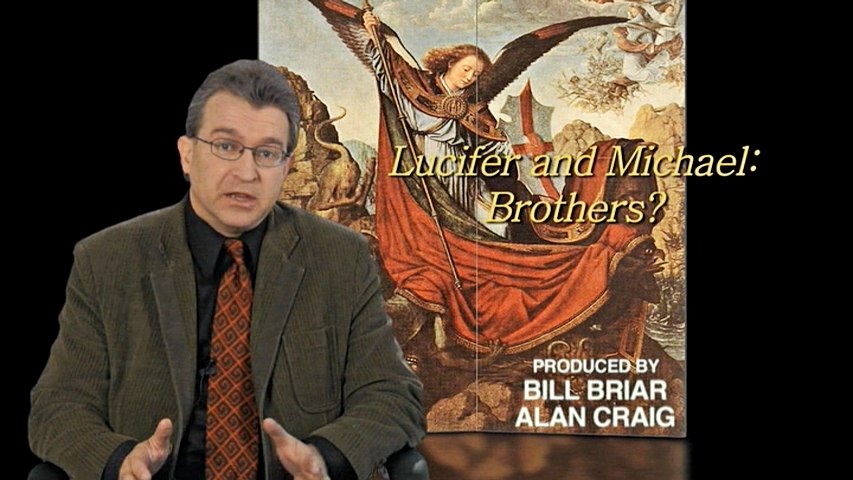
At the heart of season five’s mythology is the story of Michael and Lucifer. In the next feature, we explore their complex relationship. An important question is raised: were Michael and Lucifer truly brothers—and if not, does it really matter in the scheme of things?
We watch the host of the show discuss this topic in depth with a priest and two novelists. It’s suggested that these two figures were not literal brothers as we see them in Supernatural and in so many other stories that explore their characters. They are angels, and therefore there is no familial tie the way human beings understand it. They’re spiritual beings. Their only connection that marks them as related is that they were both created by God. As creations of God, they were therefore considered family on some level.
The novelists, Wendy Arch, takes the mythology of Michael and Lucifer and uses it in a similar fashion as Supernatural does. She pits them against one another as literal brothers, exploring their complexities and the concepts of good vs. evil through them. Yet, she doesn’t believe that they were actual brothers. She states that there is no Biblical evidence to prove this theory. They were both angels, yes, they were both created by God, yes, but were they truly related? No. That being said, she thinks the mythology lends itself easily to that particular interpretation. Considering that the Bible is riddled with brother vs. brother stories, this leap of thought isn’t all that radical.
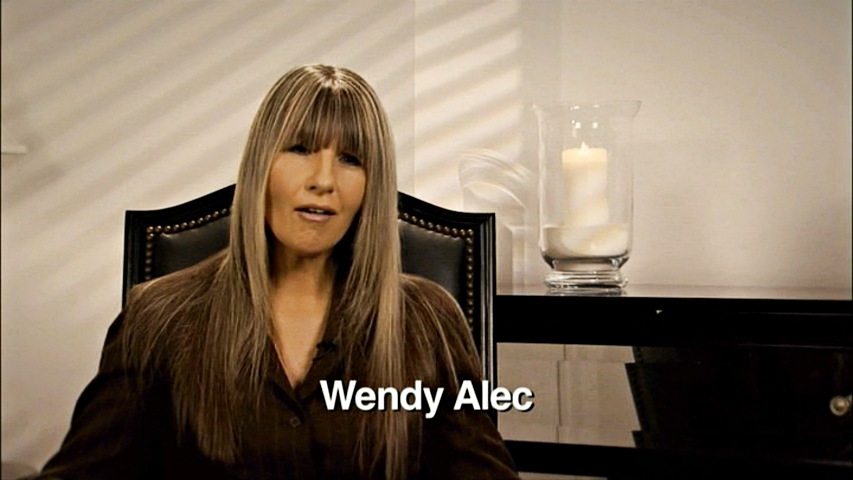
Raymond Dennehy wrote a dialog between the two, trying to understand the rift that occurred between them. Why did Michael and Lucifer ultimately end up on opposite sides? What led to their becoming the ultimate foes? He believes that Michael would have seen the truth about Lucifer. He wrote the dialog with Michael confronting Lucifer on his false freedom. Lucifer sees his path as being free from God’s will—that he can now do whatever he pleases and that no one can control him. Michael exposes this to be false. Lucifer is so busy trying to buck God’s will and plan and turn others towards his view that he doesn’t realize it’s trapped him more than anything else ever has. It’s an interesting interpretation on the story.
It’s easy, in this extra, to see how Supernatural took these various concepts and used them to lay the groundwork for season five’s overarching story. We see this in the description that Lucifer’s end game was to actually possess a human to conquer the world. This comes to fruition in the vessel storyline. Sam had been picked as a baby to be shaped and molded into Lucifer’s vessel. Along with this concept, we see Michael also have need to possess a human in order to stand opposed to Lucifer. Supernatural took much of the mythology that stretches back to the Bible and through various texts to bring the story to the show—and to use it to mirror that of Sam and Dean and how they ultimately triumph over it.
Public television invades the extras in the next segment as a discussion is held about the possibility of the Apocalypse. The panelists range from devout Christians to atheists to Muslims to science think tanks to doomsday preppers. Each perspective adds to the deep discussion about what the Apocalypse or the End Times might mean in today’s world. Some, such as the think tank representative and the atheist feel that the Book of Revelations is nothing more than literature. The religious perspective sees these texts and the omens in today’s world as guide posts to what will come. The devout Christian views the End of Days as the Heavenly battle being fought here on the earthly plane—one that will determine the outcomes for the world.
The Rapture is mentioned—that some will be taken and others left behind. It’s mentioned that the “true church” will be taken before the time of tribulations for instance. The Doomsday prepper doesn’t think he’ll be a part of the Rapture as only those who believe in it will take part. His focus is on 2012—the Mayan calendar end—and he sees preparations being necessary not so much for the end of the world but for the cosmic shift sure to begin then.
The moderator used a little boy character as a guide post to pose his questions, having each panelist address their answers to him—therefore making it easier to explain these complex and difficult questions. In the end, the strongest opinion pointed towards allowing the child to determine the answers for himself rather than being dictated about one viewpoint over another. This extra captured another layer and essence that Supernatural often weaves its story around: tackling the difficult questions that face us each day and trying to find a human answer to them. They can range from how one would handle something as cataclysmic as the Apocalypse to what is true good and true evil to how each of us will approach the world around us. Ultimately, as this discussion closed, so too we must find the answers ourselves—as we see Sam and Dean so often do.
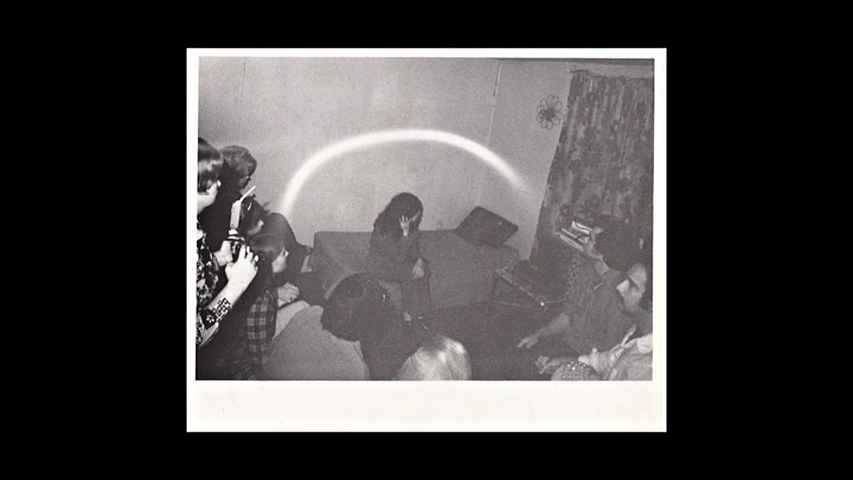
The next extra explored paranormal phenomenon. Much like shows like Celebrity Ghost Story and Ghost Story, we’re given personal stories of encounters with paranormal entities and events. Some describe malevolent spirits. Others discuss possessed individuals. One man is in charge of the investigations and often takes on these cases to help those suffering—not unlike Ghost Hunters or Ghost Adventures. What stood out in relation to Supernatural was some of the descriptions of the spirits encountered. An exorcism is described, and in that event, they say a black vapor or cloud rose from the body of the victim. While not precisely the way we see it in Supernatural, it’s easy to see how that image has become synonymous with demonic possession on the show—pulled from possible real experiences.
Another man described a neighbor that frightened his cats—while waiting at the door with a gun. This occurrence would also be familiar to any fan of Supernatural. He described quite clearly that the woman pleading entrance had black eyes. Somehow, she was possessed by something—demonic or otherwise—and it was demanding she kill her neighbor and then herself. This extra explored some of the supposed stories surrounding various supernatural or paranormal events—showing us why Supernatural has been able to make their stories around such subjects and make them even plausible. We’re not sure if such entities exist or not—there’s never been hard and firm proof—most accounts are personal and hard to recreate after all—but it is the possibility that seems to haunt us and draw us in. As an extra on the season five set, it gave us a glimpse into the making of the show’s backbone and why it continues to endure into season ten.
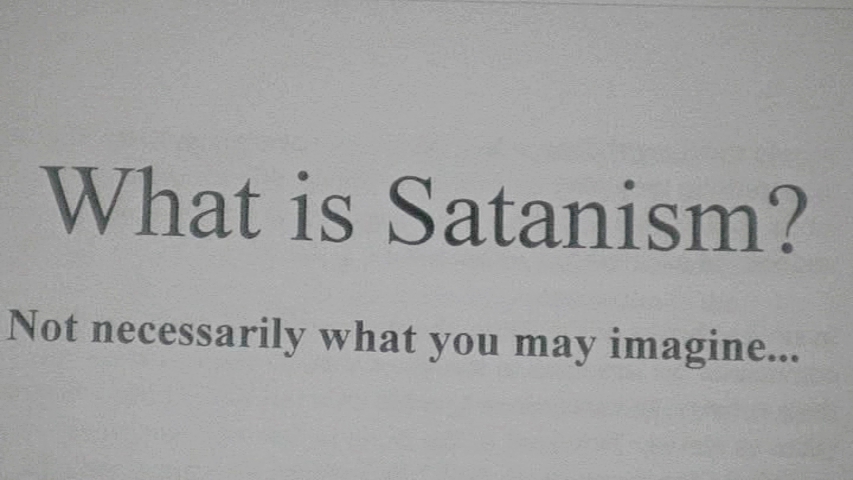
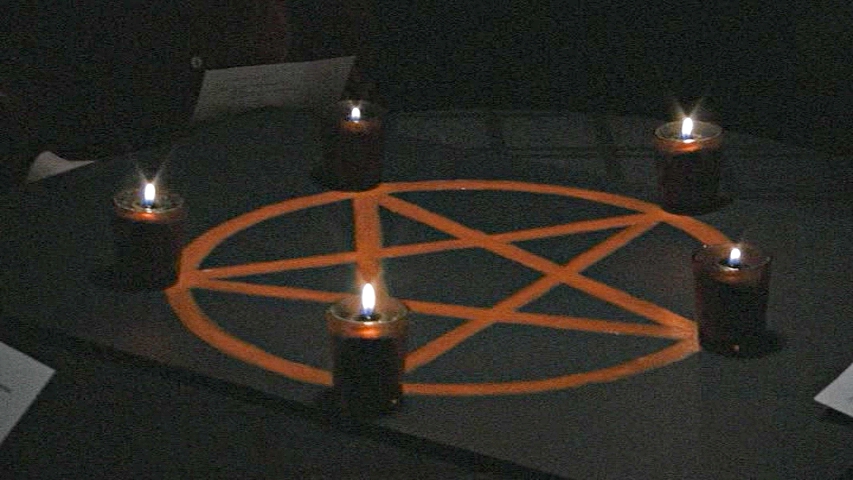
Considering that Lucifer was the big bad of season five, we’re afforded another extra discussing him and in particular that of Satanism. The discussion is yet another public television production, and we’re given a history and inside look at those who practice Satanism. Like other faiths, Satanism has different sects or viewpoints. Some view Lucifer or Satan as being an actual being that they are worshiping, while others find the concept as mere idea and guideline. They use texts and symbols that were created in the 1960s when the Church of Satan was formed. One of these is familiar to all Supernatural fans: the pentagram. This symbol, found in Christian historical records to signify the five wounds of Christ it has been re-purposed by the Church of Satan. It is to represent five beings that Satanists call upon in their rituals. Satanism seems to straddle between rebelling against the Christian or other faith based societal conventions and being atheists, In many ways, it’s an intriguing look at another viewpoint about what our place is in the world and how we navigate that world.
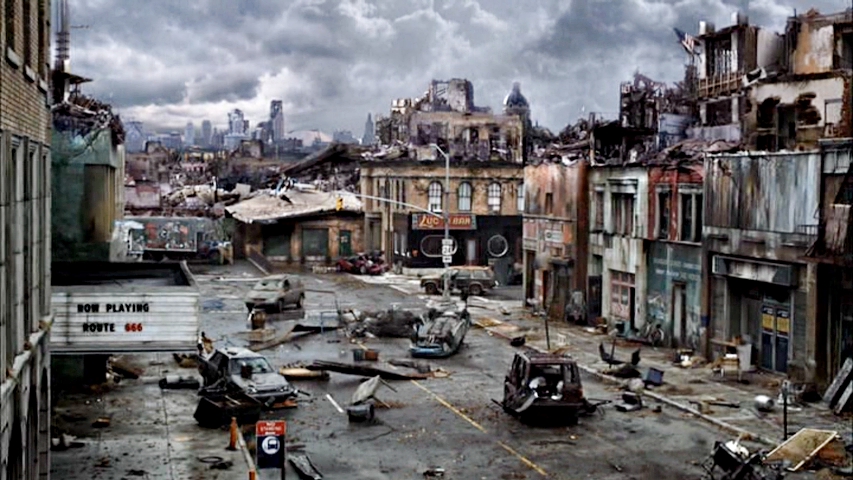
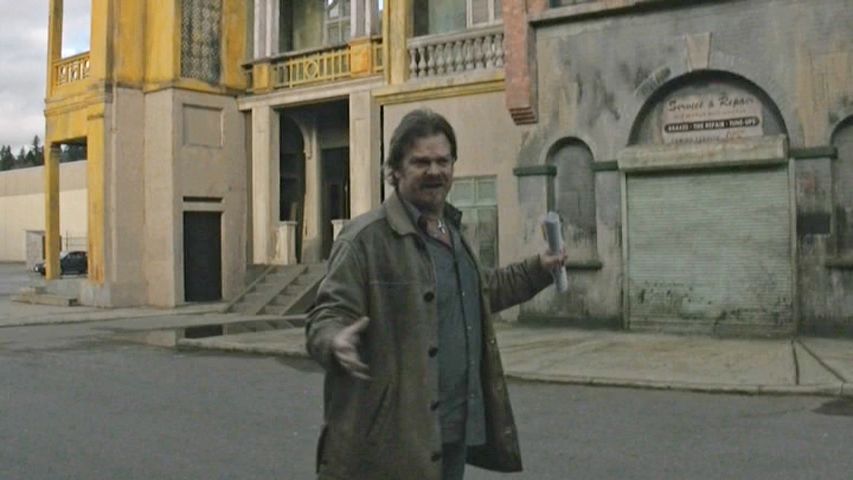
The next extra takes us to a special place for Supernatural: the Back Lot. Every year, fans make their pilgrimage to Vancouver to the convention and to visit several locations scattered around the area. One of these locations is difficult to visit unless accompanied by Russ Hamilton on the Russ Bus tour. That is the Back Lot, a place used for iconic episodes such as “The End” and the diner we see in various episodes. We learn that Jo and Ellen’s death scene takes place here, and we see the spot that the explosion took place. Instead of a hardware store, we see a blank canvas waiting for the visual crew to make their mark. We’re shown all around the Back Lot, seeing all the main streets, alleys, and facades that make Supernatural so distinctive. If you’re not able to take a tour with Russ in this or any other location, this extra captures what makes those tours so fun and amazing. What strikes me so much about this extra is just how passionate Russ is about his job.
The last extra on the season five set is a commentary of “The End.” This pivotal episode set the stage for the season five story arc on many fundamental levels. Dean is whisked away to an alternative universe five years in the future by the angel, Zachariah. There, he’s to see how bad things will get if he continues to say no to Michael and refuse his “destiny.” During the experience, Dean encounters himself, aged five years dealing with the “croats” that have now taken over the world after the virus rampaged across the land. In the end, he gets to see what becomes of Sam—namely that he does say yes to Lucifer and has now become the Devil himself. The commentary is given by Eric Kripke, Ben Edlund, and Robert Singer.

Edlund talks about how this episode concept came into fruition. He states that the writer’s room largely formed what became “The End.” They wanted to have at least one episode that explored the scope and scale of the Apocalypse. They couldn’t have the full blown Apocalypse on screen the way they do in “The End” within the season five story-lines due to several factors. One was the nuts and bolts of budget. It would cost too much to have the desolated look of “The End” throughout the remainder of the season. They wanted to capture just how expansive the Apocalypse was, however, so they needed a method to deliver that.
Kripke had spent much of the series since season two demanding to know what the plans were for Croatoan. He jokes that every time he walked into the writer’s room that he’d shout, “What about the demon virus from season 2!” Edlund took that challenge and decided to turn the Croatoan virus into a 28 Days Later scenario that they could then use in the episode to show the scope of the Apocalypse.
The alternative universe concept was not the original idea for the episode. Originally, it was suggested that Sam and Dean be sent into the future itself in a time travel situation. It would be a “clone wars” scenario that they decided was too ridiculous and didn’t make sense or fit the story they were trying to tell, so they dropped it. Instead, they chose to have Dean go into the alternate reality and face an older Dean.
Edlund states that this episode sets the stage for the direct conflict and differences between the brothers by the end of the season. They may be getting back together, but their conversation proves that they have opposing view points. Dean is for Free Will, especially when he says that they’re going to have to make their own path while Sam is for destiny when he says “We have no choice.”
Singer points out that the season directors are selected at the beginning of the year and no one knows which script or which writer they’ll get to direct. That makes it the luck of the draw. He had high praise for the director, Steve Boyum, and how he captured the visual story in “The End.”
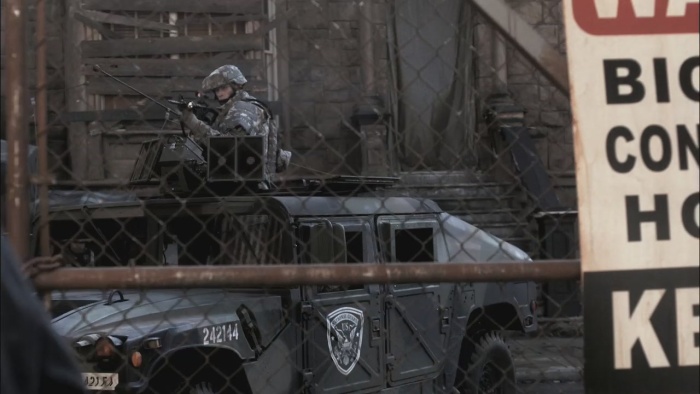
They lucked into the Watchmen set, which allowed them to do the full blown Apocalypse scene with the desolate and devastated city. The actual location is rather low and all of the New York city scape seen in the background in the movie are CGI. Here, they could set up their shots without worrying about shutting down a street. Edlund and Kripke both joked about how hard it would be to actually shut down downtown Vancouver and that it would never happen. So, it was a good thing they had a self-contained area that they could set up the destroyed world in without interfering with the rest of the city. This set would eventually become the Back Lot seen in the other feature with Russ Hamilton.
The song, “Do You Love Me” by the Contours, was written into the script. It plays while the soldiers shoot down the “croats” and Dean tries to make a quick escape before he’s counted among their casualties. “The End” was massively over budget, and this song was nearly cut as they worked on it. Edlund had it put in the script as the definition of a juxtapose, showing the sheer horror of the visual with the cheerful sounding audio. Luckily, it got to stay.
Edlund discussed how the show is a puzzle that they have to put together throughout the season to make work. He feels that Supernatural gets more money per dollar than any other show. This comes in the writing, the acting, the directing, and the special effects along with all the other things that go into making a television show work season in and season out. Each writer gets their script that fits into the season and then each director has to take that script and translate it onto the screen.
Kripke pointed out that the Impala Dean runs into as he stumbles his way towards the camp was a CGI. The actual car is there, but it was so demolished and dressed down that they couldn’t recognize it. The VFX crew then had to go into the frame and super impose another image of the car in order to make it look familiar while being neglected and in disrepair.
Singer pointed out how difficult this episode was for Jensen Ackles and how well he did in each performance. Edlund found that he kept both characters separate in his mind. The alternate reality Dean was five years more experienced with a lot more truncated emotions and that hope had been eliminated from the character. The present Dean was still Dean as we’ve known him. They talked about how Ackles made both Deans familiar and similar and yet drastically different in subtle nuances that showed you with a single look which character he was playing. To shoot the two angles, though, they had to do one with Jensen looking at a stand in, then switch and do it again. Kripke said that he emailed Ackles after seeing the dailies that if Ackles were to win an Emmy for any episode it’d be this one. Ackles, however, stated that he never wanted to do anything like this again.
Singer pointed out that Ackles not only performed well in the episode, he talked glowingly about the way Ackles prepares. He will meticulously go through each scene and figure out where he wants to stand or how he wants to deliver a line. He’s a thinking actor and to have to prepare for two characters was double the work for him. He said that Ackles gave so much and that the work did wear him down a bit, but that the end result was so nuanced and brilliant.
They really liked how both Rob Benedict and Misha Collins brought different elements to the episode. Benedict’s Chuck was to bring in levity. For Castiel, they debated how they should approach the angel in this alternate reality. Edlund thought about making him into a gangster for a bit. He wanted Castiel to be drastically different. If not a gangster, Edlund had the idea of making Castiel mad. He’d have the angel kill a cockroach and bring it back to kill it again over and over. Even Kripke thought that was a bit too depressing. Over time, they decided that Castiel would be sad and tired—but that he would still have a massive perspective on things. That lead them to make him into a guru type character with all of the yoga and meditation. To couple with that, they decided to make him a happy drunk, the kind that people like. Kripke compared him to Dean Martin.
Edlund brought up the Colt and how they approached the story line in this episode. They knew they were going to bring the weapon back, but that they never ever intended on it or anything else killing Lucifer. They knew that they were going to have him defeated another way by season’s end. Edlund knew it would be the red herring of the season. They talked about how this exchange between Dean and “Future” Dean was again part of the original time travel concept. Kripke and Edlund had the idea that time would be cyclical and that Dean would have this conversation with Future Dean endlessly in a loop. Singer simply told them, “What the hell is this?” They had diagrams about how it would work, to which Singer simply retorted, “You gonna diagram that for the audience?” They scraped it to be an alternate that allowed the Colt to appear but the time-line and the endgame not be interfered with.
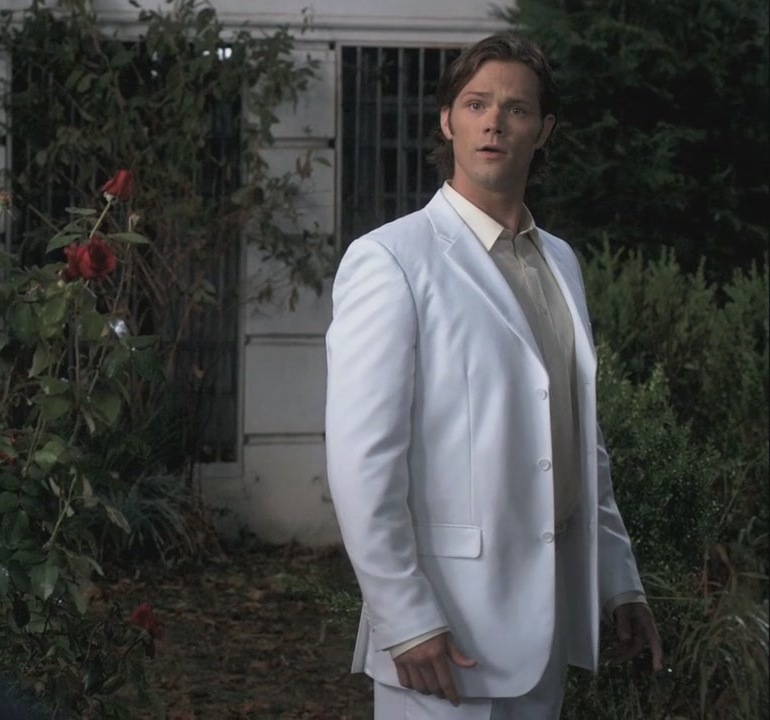
They also didn’t originally intend on having the reveal about Sam and Lucifer in this episode. It was something they had wanted to hold back, but felt that it would actually set up the season story well to show it here. They were going to have Sam originally living in a cabin away from hunting—and the more they thought about it, this other concept with Sam saying yes to Lucifer made more sense. For Lucifer, they thought it would make more sense for him to be a philosophical being that wanted to tell his own story to Dean to build up sympathy. They wanted the audience to know this side to have another perspective. For the reveal, Kripke quipped that it’d be “The Wizard of Oz, played by Jared Padalecki.” The iconic ice cream suit seen in the episode was a suggestion from Sera Gamble. She felt that it would visually capture the character. He’d be clean and crisp, reflecting one of his names—Morningstar—while being surrounded by filth and desolation.
This, however, led them to realize that a good portion of the front half of season five had a lot of monsters telling their story, and they understood that they had to change that by the back half in order to get out of the rut.
The famous “hoard TP like it’s Gold” moment was a late write on the script. They had the idea of Chuck, a prophet, imparting some form of mythological related information here, but decided instead that it’d be better if the character brought humor to an already dark episode. They wanted to capture Chuck well here.
They really loved Kurt Fuller in the episode. He captures the cool and middle management type with humor and menace. Edlund plugged that Fuller had also appeared in the live action version of his comic The Tick, which garnered him some ribbing from both Singer and Kripke.
They talked about how collaborative the writing team is on the show. As much of this episode was put forward by Edlund, so much of it originated in the Writer’s Room or from Sera Gamble’s suggestion to Kripke helping Edlund shape the alternate reality Castiel. They discussed how a season works in the Writer’s Room and how they approach the long haul with each episode being a single piece in the overall puzzle. Aside from the goofy moments between Kripke and Edlund, we really get a grasp on how they work together each week to bring the show to life not as a single episode writer but as a full team. It makes television writing a fascinating adventure—one that we get to glimpse when we watch a commentary such as this one.
Next time, we’ll dig into season six’s extras.
Which extra is you favorite?


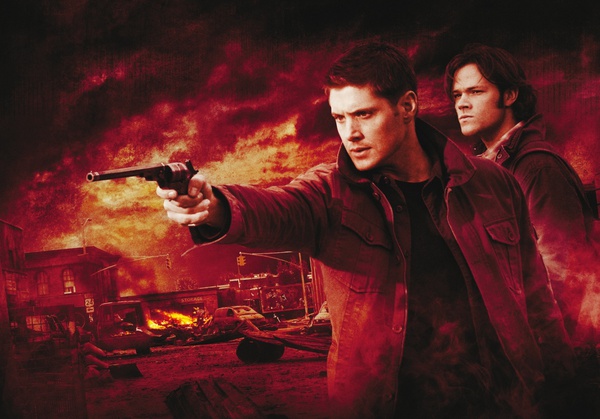
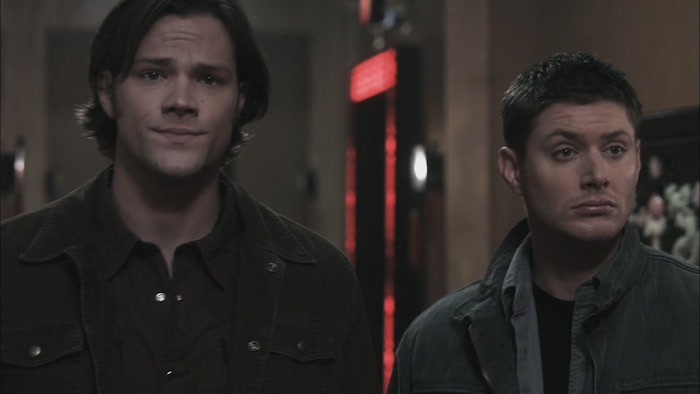
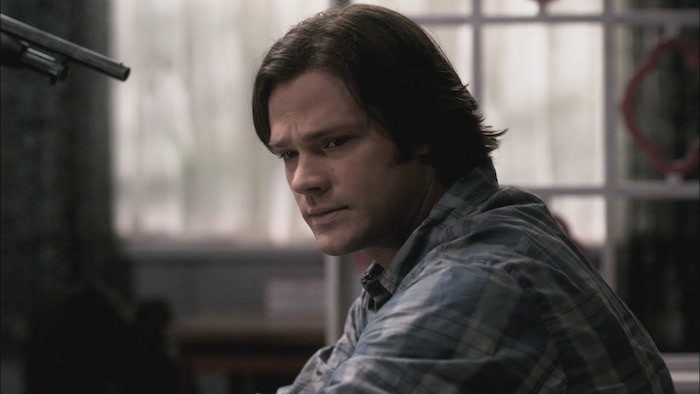
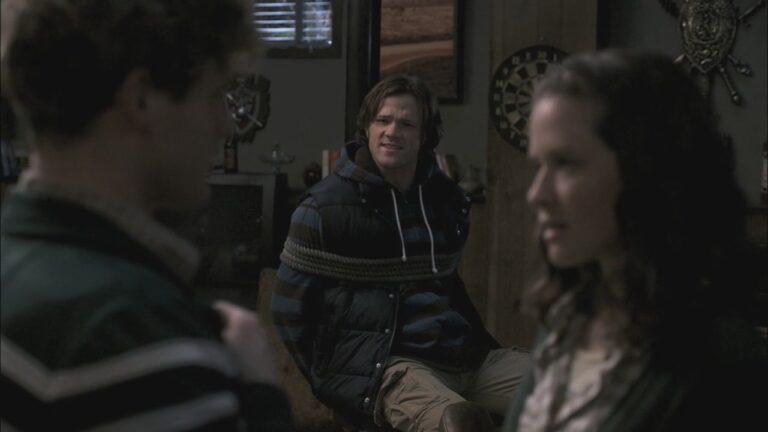
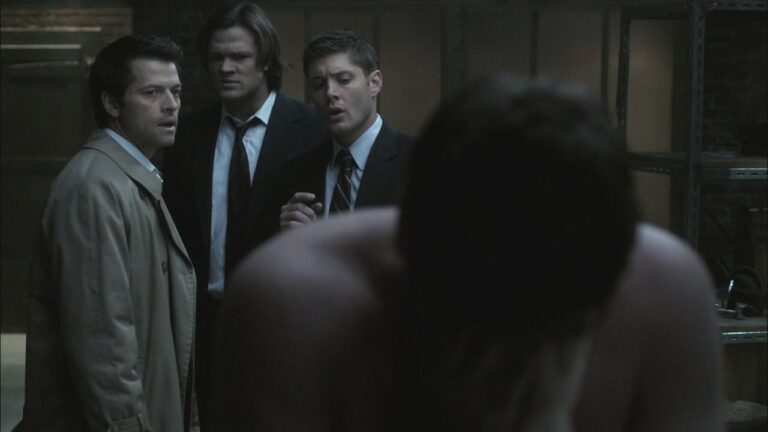
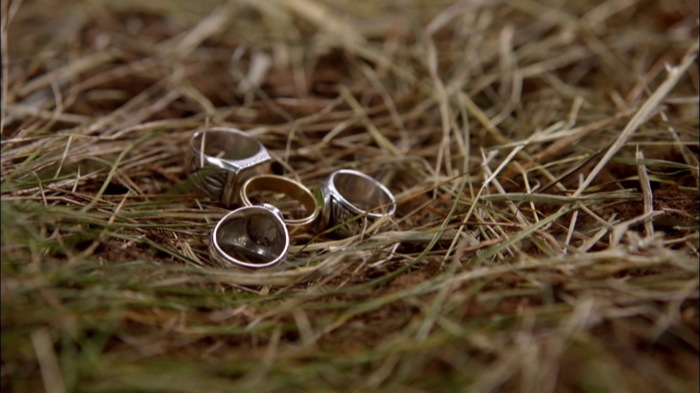
This episode, “The End”, is in every way, acting, production, directing, writing, etc. an absolute masterpiece!! One of a kind!
Thanks for the comment!
I agree completely. It was neat to hear all the details that went into the final product we know and love so much. That episode should have won this show all the awards and more.
Thanks again.
The End was a masterpiece. I actually watched it with the commentary when it was the real Croatoan day Aka we passed the day in the future. It really was like a movie. The whole episode and I loughed when they told what Jensen said to them after the episode was filmed. As we know he needed to play two Dean’s at the same time and he did great, but it was so tough on him that he said to Edlund: “Don’t ever do this to me again.” 😀
But I loved the episode. Every detail I have learned from it I loved it. Like that Jensen needed to slow down when he was running from the “zombies” because he would run too fast otherwise for them.
Also Jared at the end in that white suit. Rawr. Everyone did great and New Age Castiel was awesome.
The four horseman is also one thing I liked that season and all the actors and how the characters were portrayed was top notch. Surprise, surprise, Death is my favorite. 😉
– Lilah
Thanks for the comment.
Oh my yes. I was thrilled when I saw that the lone commentary was for this episode. It’s the best one out of the season to choose for that. I loved hearing about all the detail work that went into the final product and I love that Edlund kept telling everyone that it wasn’t just him. It’s so awesome to hear how much collaboration takes place on this show and this really gave me that. I felt for Jensen having to do all of the double work, though. It turned out fantastic, but I can understand why he’d feel that way.
And Jared in that suit is one of my favorite things EVER.
The four horsemen segment really grabbed me. It was neat to hear how each one fit into the story and how the lore came from the book of Revelations so well. And yes, Death is my favorite, too.
Thanks again.
The importance of an education is always the great. This is the factor that is really worthwhile. And it should get that respect and honor that this factor deserves. Because education is that thing that is helping people in this whole world in every phase of life.
nice